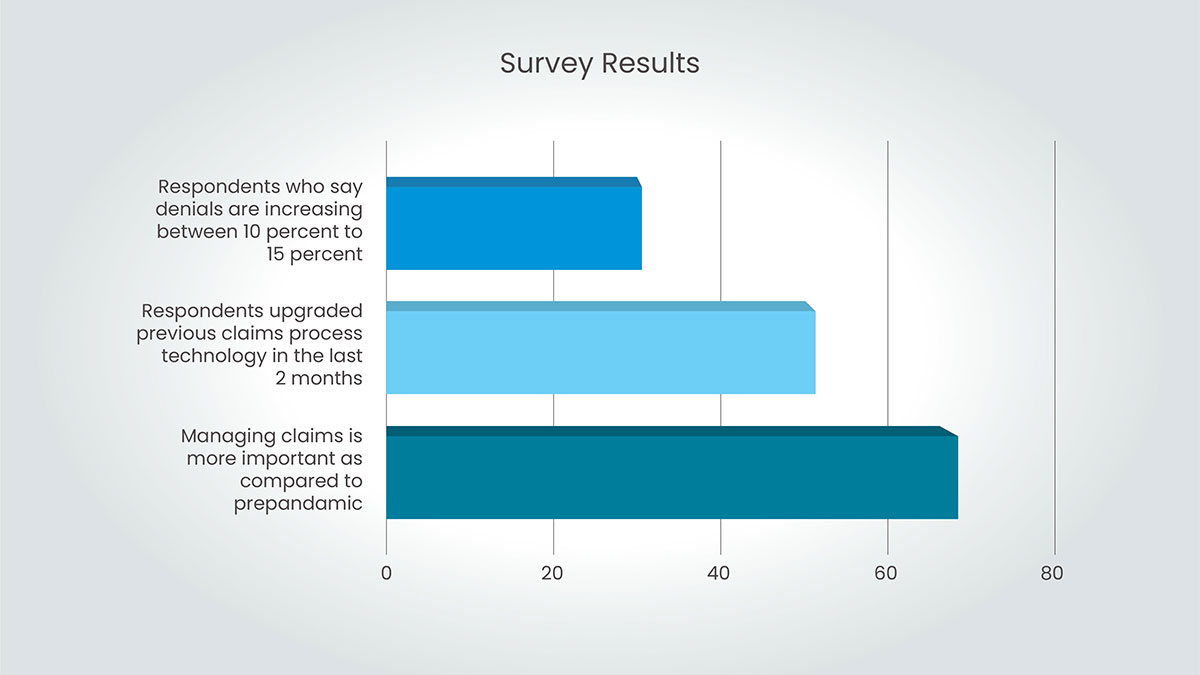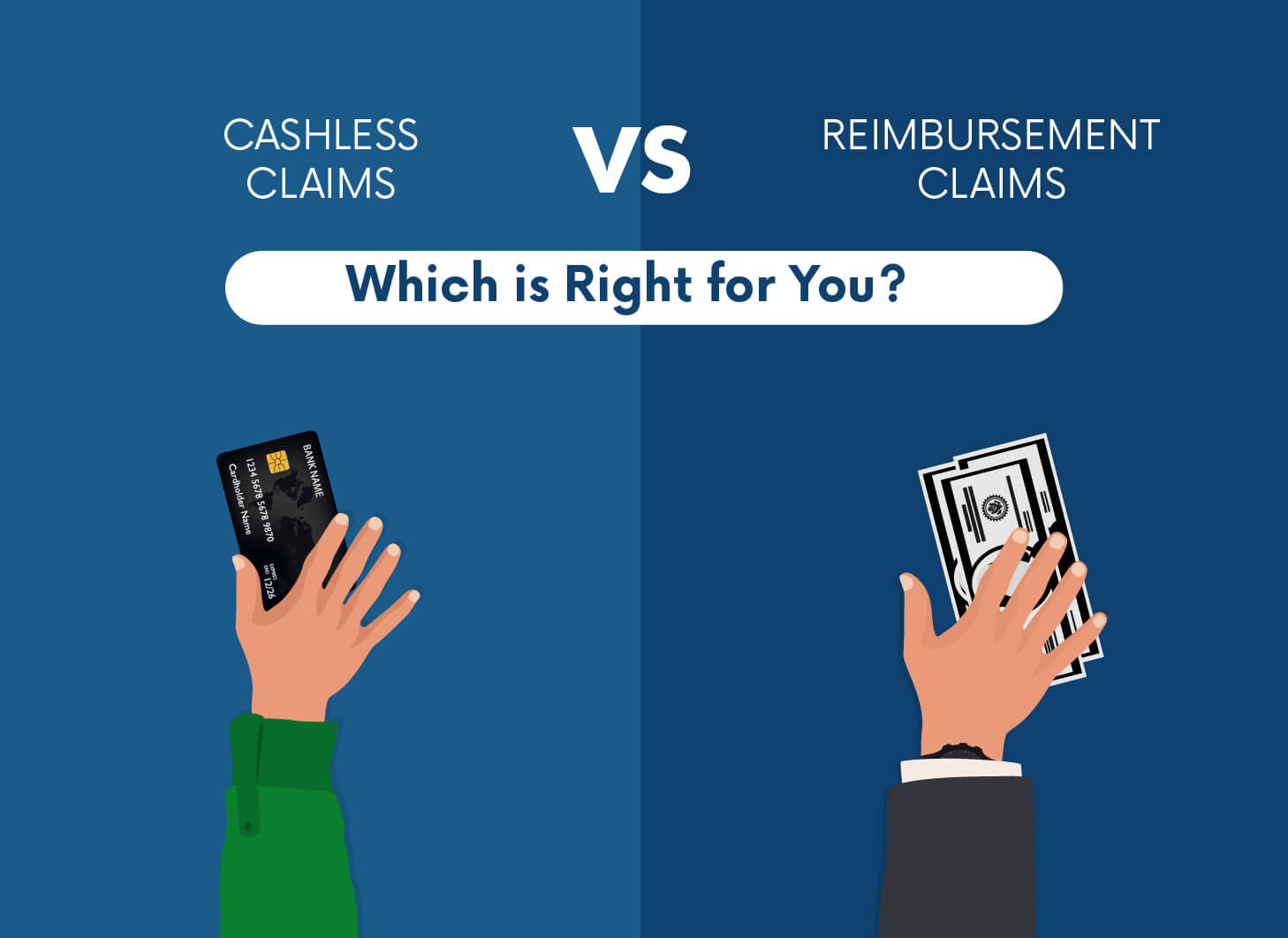Cashless vs. Reimbursement Claims: Which is Right for You?
In the current dynamic healthcare world, knowing how patients can access their health insurance benefits would be a lifesaver for some. There are two primary claim settlement options: cashless claims and reimbursement claims (medical reimbursement claims). The purpose of this blog is to explain these options to you; thus, it will be easier for you to lead your patients through the process.
But before we dive into this topic, let us see how important these claims are to patients.

What are Cashless Claims?
An alternative strategy for patients to undergo medical care without making payments in advance is through cashless claims. Let me take you through the process:
- Network Hospitals: A hospital is selected by your patient from those belonging to the insurance company’s network. Such hospitals have established agreements with the insurer for cashless settlements.
- Pre-authorization: The patient should get this from his insurer. It consists of telling the insurer about the planned treatment and receiving approval for a cashless settlement.
- Hospital Handles Billing: While you are in the hospital, the hospital makes a bill directly to the insurance company for all services covered by your policy. Usually, you have to pay any copays or deductibles.
- Faster Discharge: In the event of a settlement by the insurance company, the hospital can release the patient without delay for individual payment.
Benefits of Cashless Claims for Patients
- Reduced Financial Stress: When using the service of their choice, patients do not need to be concerned about upfront payment. This is more than welcome— particularly in emergencies.
- Faster Treatment: The implementation of cashless claims can fast-track both admission and discharge processes for patients. And what does that mean? They can concentrate on recuperation.
- Convenience: They won’t have to deal with intricate paperwork or claim submissions.
Things to Consider with Cashless Claims
- Network Limitations: Cashless claims are only valid at some in-network hospitals. Patients should check their insurance plan’s network before choosing a hospital.
- Pre-authorization Requirements: Missing pre-authorization for planned procedures could result in the denial of cashless benefits.
- Coverage Limits: Patients may still be responsible for costs exceeding their insurance coverage limits.
What are Reimbursement Claims?
Reimbursement claims offer patients more flexibility in choosing a healthcare provider; this is how it works.
- Any Hospital: Patients have the freedom to select any hospital— whether within or outside their insurance network.
- Upfront Payment: Payment for the treatment is made by the patients themselves upfront during the service
- Claim Submission: When patients seek healthcare services and receive treatment, a claim form as well as medical bills have to be submitted by them to the insurance company.
- Reimbursement Process: The process of reimbursement involves the insurance company evaluating the claims made on medical costs to be paid back to the patient. The evaluation should consider those covered and exclude deductibles and copays from the reimbursed amount.
Benefits of Reimbursement Claims for Patients
- Choice of Providers: The patients have the freedom to choose any qualified healthcare provider, irrespective of the network to which they are affiliated.
- Potential for Lower Costs: There is the possibility that sometimes out-of-network providers may offer lower charges than in-network providers. Patients can check and compare costs before selecting a provider.
Things to Consider with Reimbursement Claims
- Financial Burden: Patients need to pay for treatment upfront, which can be a financial burden.
- Potentially Longer Reimbursement Time: The reimbursement process can take time, leaving patients waiting for their money.
- Claim Denials: There’s a chance the insurance company may deny the claim partially or fully, leaving patients responsible for more costs.
How Can Capline Help?
The process of managing health insurance claims is not simple: for busy healthcare providers, it can be a real challenge. However, Capline can streamline this complex process for both cashless and reimbursement claims. We offer the following services:
- Eligibility Verification: Capline can verify that a patient is covered by insurance before even receiving treatment — a step towards reducing claim denials based on ineligibility.
- Medical Coding and Billing: Capline’s experts take care of ensuring that there is accurate coding for cashless claims as well as managing the submission process of the reimbursement claim.
- Payment Tracking: Claim payments are tracked by Capline. This helps to guarantee that you receive your due reimbursements promptly.
By taking over these responsibilities, Capline allows you to direct your focus toward patient care— while they make sure your practice gets paid what it deserves.




